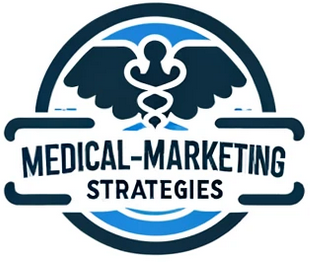A case study in why Medical Aesthetics Practices should always review their Search Terms Reports
I recently did a Google Ads account audit for a medical aesthetics client who had a difficult time generating leads for their NeoGen Plasma campaigns.
They had been running the ads for several months, but the lead count was very low, and the cost per lead was extremely high. They were getting many clicks, but people just weren’t converting.
There are many reasons why people may not convert after clicking your ad:
- Your website may be too slow (especially on mobile)
- Your offer isn’t strong enough compared to your competition
- Your campaigns aren’t targeting the right users
But in this case, everything seemed to be done correctly. The ads were solid, and had good messaging. The website loaded quickly and was very user friendly.
And at first glance, the keywords were very relevant, too.
But that was only at first glance.
“Relevant” Doesn’t Always Mean “Right”
Upon closer examination, I found the problem with the client’s campaigns; they were using keywords highly relevant to NeoGen, but these keywords were completely wrong for the Plasma treatment.
In their initial campaigns, the client simply opted to use keywords like “neogen” and “neogen near me”.
For many treatments, this would be just fine. But not in this case.
What the client didn’t realize is that there is also a company called “Neogen Labs” that makes face creams, serums, and other skin care products.
So when people were searching for “neogen”, most of those searches had nothing to do with the NeoGen PSR system; these people were just looking for face creams.
The Search Terms Report is Highly Valuable
I was able to figure out this issue by relying on the Search Terms Report. This is one of the most useful tools in medical aesthetics marketing, and you should use it whenever you run campaigns for your practice.
The Search Terms Report shows you exactly what words users typed into Google in order to trigger your ads to appear.
A quick point of interest:
- “Keywords” are the words you would like to target on Google. You are essentially telling Google “these are the words that my potential clients are most likely to use; and I would like my ads to show when people type them into the Search Bar”
- “Search Terms” are the actual words that people typed into Google to trigger your ad.
- So you may add a keyword to your campaign that says “neogen”, but Google may match it to someone typing in “neogen cream”, and trigger your ad to show to that person.
Here is a sample screenshot of the client’s Search Terms Report. You can clearly see that the searches that triggered the ads did have “neogen” in them, but had nothing to do with the PSR system:

That’s why it’s vital to review your Search Terms Report on a regular basis, to make sure that your ads are showing for the right types of searches, and to see if your keywords should be further refined.
A Better Set of NeoGen PSR Keywords
This client’s campaigns had virtually no chance of succeeding in their current state. It was vital to restructure the keywords to ensure the ads were only showing to the right audience.
To do this, I removed the more general NeoGen keywords and refocused the campaigns on keywords that were highly relevant to NeoGen PSR. For example:
- neogen laser
- neogen plasma
- neogen plasma facial
- neogen plasma facelift
- neogen psr
- neogen nitrogen treatment
Very quickly, we saw nearly a 7x improvement in the conversion rate, because the ads were now only being shown to people who were specifically looking for NeoGen PSR treatments in their area.
Use the Search Terms Report Regularly
Whether you just launched brand new campaigns for your medical aesthetics practice, or you’ve been running them for years; I encourage you to check the Search Terms Report regularly to make sure your ads are showing to the intended audience.
You can see step-by-step instructions on how to find the Search Terms Report here:
